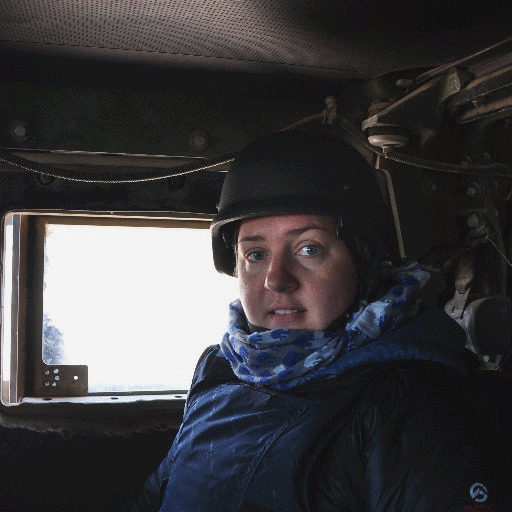Mironova Shares Experiences Working with Rebel Fighters

Lecturer Mironova spoke at Colgate about her research concerning motivations for joining rebel groups.
On Thursday, September 28, Persson auditorium was filled to capacity with students as they waited to hear International Security Fellow at the Harvard Kennedy School and PhD candidate at the University of Maryland Vera Mironova speak about her experience with rebel groups in the Middle East. Although the lecture included “ISIS” in the title, its focus was on rebel groups fighting the Assad regime in Syria.
Mironova has many impressive accolades and unique life experiences. She is the only person to graduate from Moscow University with a diploma with two disciplines at once. Mironova was the very last person to evacuate from the Yemen Embassy and the only person to actually exchange text messages with a former ISIS fighter who was seeking to save his family from a refugee camp.
Mironova began by explaining why there are so many rebel groups fighting the government in modern Syria. She explained that, with new technology, groups are able to recruit bodies and ask for money very easily, whereas 10 years ago, they had to physically send leaders to specific areas to recruit. Groups are built of manpower and resources, she explained, and the technology allows these to be readily available.
Mironova’s presentation was unique in the fact that she was able to use her international relations studies and her expertise in mathematics to discover why the rebel groups in Aleppo and Idlib were acting as they were. She created intricate surveys and worked with translators while asking an array of questions to specific rebel groups and citizens. Mironova asked questions of refugees, civilians and fighters in a survey of 500 people. Questions included: Why aren’t you fighting? Why haven’t you joined a rebel group? Why did you stay in an active war zone? Why did some people decide to fight?
Mironova started her data collection in Aleppo then moved to Idlib while Aleppo was an active, dangerous frontline and Idlib was a bit safer, to capture answers from two different environments.
Mironova compared civilians joining rebel groups to American students applying to university. Potential members look for key aspects in a group, just as students try to find the perfect fit for college. They look for safety for their family, good money and a group that is well-organized and fights well. For them, this is their daily life and essentially every person is involved somehow since groups rely heavily on civilians for food, supplies, tactics and medical help.
First-year student Nathan Stern, who attended the talk for his Global Peace and War class, commented that instead of focusing on the religious motives for joining rebel groups, the presentation explored other motivations.
“This presentation painted a picture that groups in the Middle East are able to provide the basic necessities of life like home, shelter and care,” he said.
Mironova humanized these people, suggesting that maybe these rebel groups did not just consist of extreme religious followers that use incredible violence to support their beliefs.
First-year Julia Feigen appreciated Mironova’s honesty.
“She was incredibly candid about her time in the battle zones,” Feigen said.
To Feigen, this really showed Mironova’s toughness and determination to discover what was really going on in the Middle East. The presentation offered a new perspective on the motives of why people are fighting and the turmoil in the Middle East.
Contact Kelsey McGeough
Kelsey McGeough is a senior from Weston, Massachusetts concentrating in English. She’s previously served as a news editor and staff writer. She is involved...






